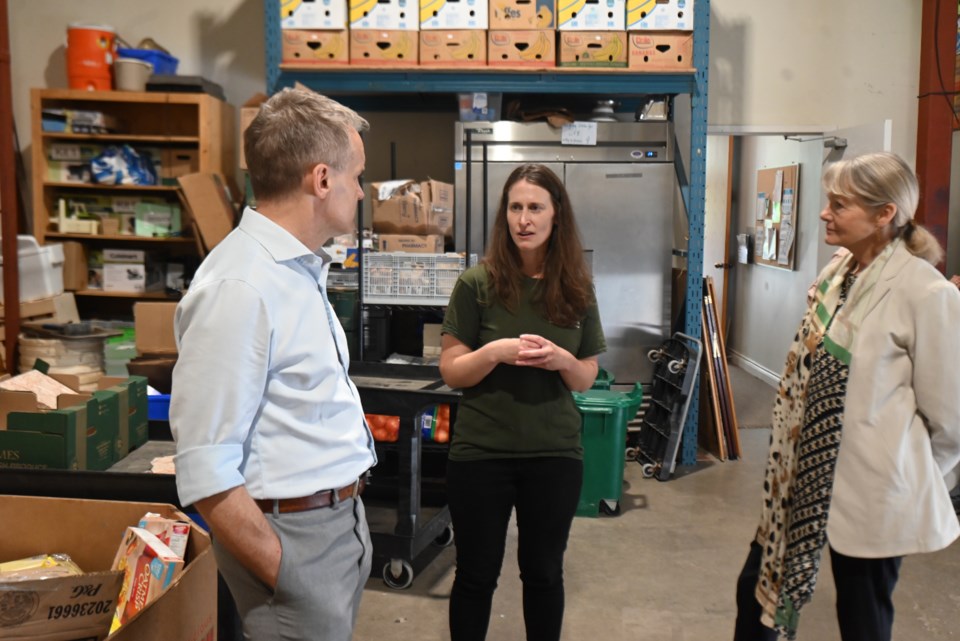York Region Food Network and schools made their case for federal government support for school programs during a minister’s tour May 17.
Minister of Labour and Seniors Seamus O’Regan and Aurora-Oak Ridges-Richmond Hill MP Leah Taylor Roy visited the Aurora-based organization’s facility to hear more about how food programs are working on the ground. This comes after the federal government pledged $1 billion over five years for a new National School Food Program as part of the 2024 budget.
Representatives from the food network and schools talked about how acute the need is and how funding and food programs can be inconsistent across York Region schools. York Region Food Network executive director Kate Greavette said the tour was a wonderful opportunity.
“Everything we do, it’s about working in collaboration with others. We don’t believe working in silos will change the system, which is what we’re trying to do,” she said. “Hopefully, they can take some of our experiences and help translate that into funding dollars, but more importantly, public policy as well.”
The new National School Food Program aims to provide meals for 400,000 kids per year, beyond those served by existing school food programs. It will also aim to help provinces, territories and Indigenous partners expand existing school food programs. But more details are to come regarding the implementation of the program and how the dollars will flow.
Co-chair of the York Region Food for Learning committee Yvonne Kelly said they hope that governments can step up and provide funding and decrease reliance on corporate sponsors, which may not always be consistent.
School food programs in York Region are funded almost entirely through charitable support and fundraising from schools, she said. That can also mean inconsistency with school-generated funds, with some more affluent communities able to fundraise more than others.
The federal government could “have leverage with local institutions, like our school boards, if there was an understanding across the board that this is a critical need,” it could make a difference, Kelly said.
O’Regan said local organizations are being heard and the government hopes to ensure the National Food Program can work well for them.
“We’re launching a pretty ambitious food program and it’s really important in the early days that we listen to people who are already doing such good work,” he said. “That we work with them, that we don’t make life more complicated and together, we help lessen the need for these services.”
Taylor Roy said they are trying to gather information to ensure the program works well for organizations in York Region.
She also said the hope is that the federal government programming can enhance existing services and avoid it causing other organizations to pull out of any existing funding for food programs.
“We’re really getting information so that we can sit down and talk about how does this work best for different communities, and how we collaborate with people who are already there,” she said.
The program could make a big impact on the York Region Food Network and its partners, Greavette said.
“Right now, it is a relatively small investment across the country that’s happening, but we’re optimistic that there’s going to be a really strong implementation of this policy,” she said. “The potential for student success, for the economy, for health is massive.”




